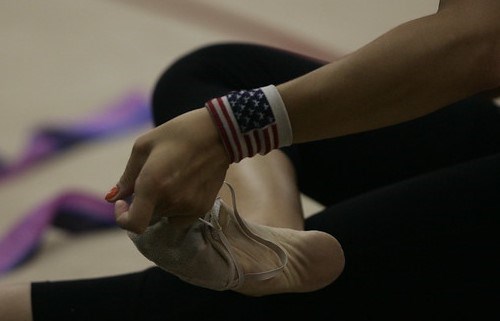In the wake of the USA Gymnastics scandal, new bill proposal sparks debate on sport's autonomy

Photo: margaretglin / Flickr
For nearly two decades the now-convicted child molester Larry Nassar was able to serve as team doctor for the USA Gymnastics. Nassar first made the headlines in 2016 when The Indianapolis Star published the story of an unknown US gymnast and Rachel Denhollander, a former gymnast from Louisville. Denhollander allowed The Indianapolis Star to publish her name and she told the newspaper that Larry Nassar sexually abused her under the guise of medical care for lower back pain as a 15-year-old club-level gymnast in 2000.
In the weeks and months after the story became public numerous women filed criminal complaints against Nassar and USA Gymnastics. Ultimately on November 22, 2016, Nassar was charged with sexual assault for abuses taking place between 1996 and 2005. On January 24, 2018, Nassar was sentenced to 175 years in prison after pleading guilty to sexually abusing seven girls.
July 30, 2019, Democratic Senator Richard Blumenthal of Connecticut and Senator Jerry Moran, a Republican from Kansas, released a 235-page report summing up 18-month investigating of how this was even possible. Their investigation included four subcommittee hearings, interviews with Olympic athletes and survivors, and the retrieval of over 70,000 pages of documents.
“Our investigation concluded that coaches and powerful individuals within the Olympic movement were able to assault athletes of all ages because of a lack of oversight and transparency,” writes Blumenthal and Moran in a comment for USA Today pointing at a culture of neglection in sport.
“Repeatedly, men and women entrusted with positions of power prioritized their own reputation or the reputation of a national governing body over the health and safety of the athletes,” as they write.
New bill to prevent future scandals
Their 18-month investigation has now culminated with a bipartisan bill proposal in the Senate titled the ‘Empowering Olympic And Amateur Athletes Act of 2019’. The bill aims to change the sports culture of the United States noting that Nassar “is hardly the only case of unchecked criminal behavior.”
According to John Manly, an attorney who represents dozens of Nassar abuse survivors, the bill takes “power away from the USOPC and gives it to Congress, which is elected by the people,” adding that “Congress can now act if United States Olympic & Paralympic Committee or the National Governing Bodies won’t. That’s a critical step for athlete safety,” he says to The Time.
Among the several concrete propositions to prevent future governance failure within the U.S. Olympic movement is also the establishing of “legislative mechanisms by which Congress can dissolve the Board of the U.S. Olympic Committee and decertify National Governing Bodies.”
This legislation would – at least in principle – contradict on the basic assumption on sport's autonomy.
The autonomy of sport on the line?
The new bill and its contradiction on sport's autonomy may therefore put the USOPC on a collision course with the IOC and its Olympic charter as it would interfere with one of IOC’s principles; that sports organizations must be protected from government interference.
In reality, IOC does not always uphold this strictly as seen in a number of cases where governments de facto are controlling national Olympic committees as documented in a Play the Game study.
Neither senator’s media staff has responded to questions on whether such a law would violate the Olympic Charter’s insistence on autonomy and the IOC will not comment on the legislation aparat from stating that it is following the lead of the USOPC.
USOPC CEO Sarah Hirshland said in a statement regarding the proposal that “there are sections in the proposed legislation that, while conceptually appropriate, could result in unintended consequences and disruption for athletes in operational reality. We look forward to working with Senators Moran, Blumenthal and others in Congress to address these areas, make athletes more safe, and make Olympic and Paralympic organizations in the U.S. as exceptional as the athletes they serve.”
Athlete power on the rise
The bill also suggests empowering athletes by giving them a seat at the decision-making table, and increase their representation on governing boards, committees and panels within NGBs and the USOPC. This aims at giving the athletes a better chance to speak out a lot sooner than pre the Nassar case.
Although the bill has been lauded in broad by US athletes, there is also a diverse array of critics. A group of more than 200 Olympians and advocates known as Team Integrity has released a statement saying the bill doesn’t include several of their recommendations.
The Guardian also questions if the bill’s proposal on USOPC paying money to SafeSport will come out of the pockets of the athletes the bill intends to protect.
In October, the Play the Game 2019 conference in Colorado Springs will focus on the athlete’s power in numerous areas. Among many others, representatives of US Center for SafeSport and athlete’s rights campaigner Nancy Hogshead-Makar will discuss the matter and consequences of the Nassar and USA Gymnastic scandal.
Athlete's power and the right to speak are among the major topics up for debate at Play the Game 2019, which takes place in Colorado Springs on 13-16 October.
See the preliminary programme for the conference and read more about speakers, registration and prices at the conference website.






